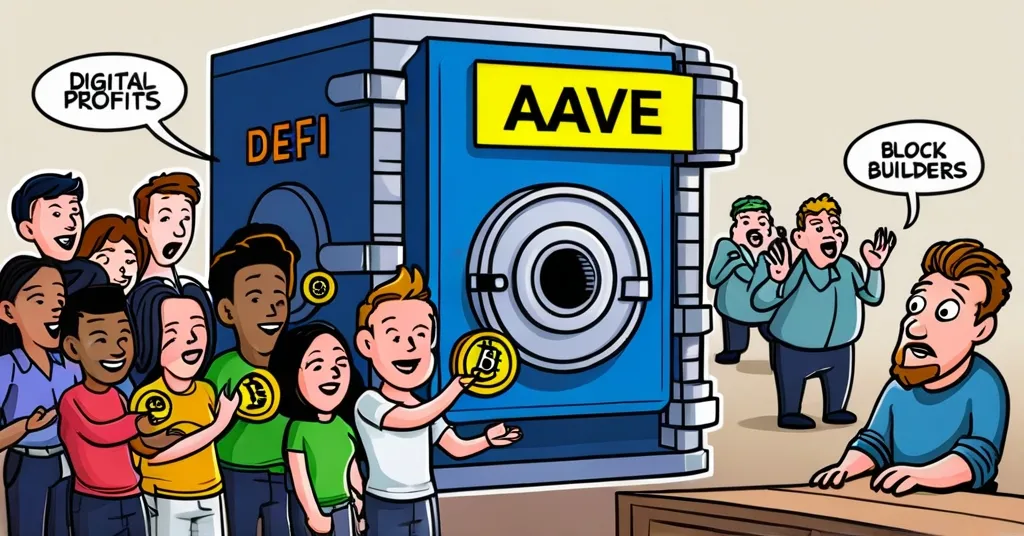Aave to Redirect 40% of MEV Profits to Users with Chainlink’s SVR Integration

Aave’s Proposal: Redirecting MEV Profits with Chainlink’s SVR
Aave is stirring the decentralized finance (DeFi) landscape by exploring the integration of Chainlink’s Smart Value Recapture (SVR) oracle. This move aims to redirect Maximum Extractable Value (MEV) profits back to Aave users, disrupting the current system that disproportionately benefits block builders.
- Aave’s Proposal: Integrate Chainlink’s SVR oracle to capture MEV profits for users.
- MEV Profits: 40% of these profits are proposed to be redirected to users via Aave DAO.
- Chainlink SVR: An oracle designed to capture MEV for DeFi protocols.
- Transaction Reordering: Block builders profit by reordering transactions, affecting user benefits.
- Private Transactions: Ethereum users increasingly use them to protect against MEV.
Maximum Extractable Value (MEV) refers to the additional profit miners or validators can extract by reordering transactions within a block. In Aave’s ecosystem, this practice has skewed benefits towards block builders, leaving regular users at a disadvantage. By integrating Chainlink’s SVR, Aave seeks to recapture a significant portion of these profits and redistribute them back to its community.
“Whenever a position needs to be liquidated, [a third-party] liquidator repays some debt and receives the equivalent value in collateral, plus a percentage on top denominated liquidation bonus.”
Chainlink’s new SVR oracle service facilitates an MEV-Share auction, selling “the right to back-run” Chainlink’s price-feed oracle and profit from liquidations. This mechanism is expected to capture and redirect a considerable chunk of MEV gains back to Aave users through the Aave DAO, suggesting a more equitable model for profit distribution.
Aave’s proposal to redirect 40% of MEV profits to its users could indeed set a new standard in the DeFi world, challenging the status quo where block builders pocket the lion’s share of these gains. This integration could also encourage other protocols to adopt similar measures, fostering a more balanced environment in DeFi.
Ethereum users, on the other hand, have been leaning towards private transactions, including dark pool arrangements, to guard against MEV exploitation. Whether Aave’s strategy will catalyze broader protective measures remains to be seen.
Key Takeaways
- What is Aave considering integrating to benefit its users?
Aave is considering integrating Chainlink’s Smart Value Recapture (SVR) oracle to redirect MEV profits back to its users.
- How much of the MEV profits does Aave intend to redirect to its users?
Aave plans to redirect 40% of MEV profits back to its users through the Aave DAO.
- What problem does the integration of Chainlink’s SVR aim to address?
The integration aims to address the disproportionate MEV profits currently enjoyed by block builders, ensuring users also benefit.
- What strategy are Ethereum users employing to protect against MEV?
Ethereum users are increasingly using private transactions to avoid MEV exploitation, often opting for dark pool arrangements.
Experts are optimistic that Aave’s collaboration with Chainlink could serve as a benchmark for DeFi protocols grappling with MEV issues. With Chainlink’s infrastructure supporting billions in DeFi, the partnership might indeed pave the way for a fairer, more balanced DeFi ecosystem where user trust and adoption thrive.



